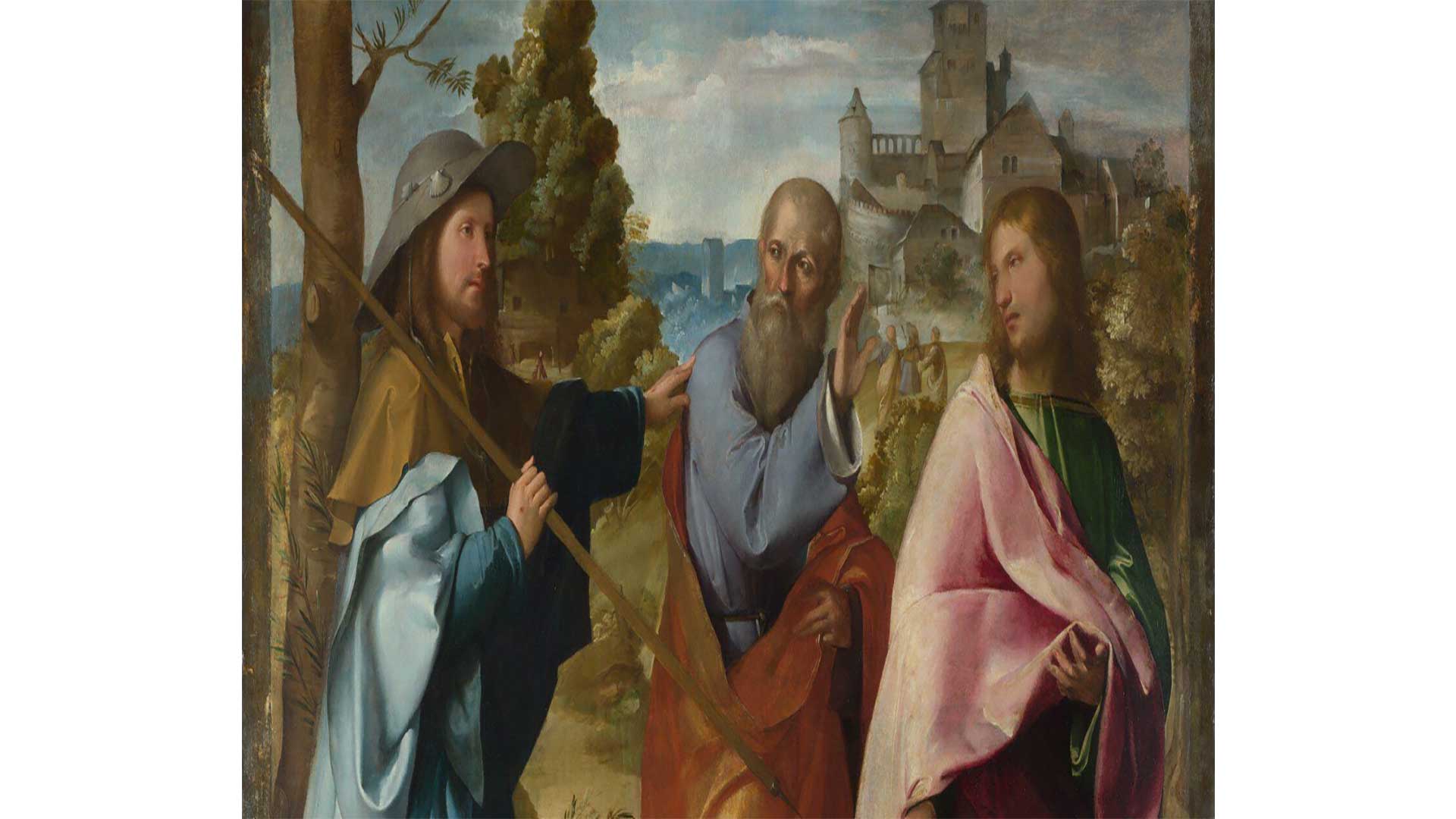The Challenge of Faith
Today’s Gospel, taken from St Luke (24: 13-35), is about what happened on the evening of the Resurrection and how the eyes of two disciples were kept from recognising Jesus who had just then joined them on the road to Emmaus. Jesus feigned ignorance of the things that had happened in those momentous days. Rather, He heard what they had thought of Him: that He was a prophet expected to redeem Israel, and now His body was reported missing.
Were they feeling it was all over now? Just then, the fellow traveller lamented their foolishness and how they were “slow of heart to believe all that the prophets have spoken.” But none of that hurt their self-esteem; they even invited the stranger to stay the night with them. And it was there at the table – when He took the bread and broke it – that their eyes saw Jesus; but he had meanwhile vanished out of sight.
What about us, traditional Catholics? We who have been with the Lord all these years, do we know Him up close and personal, or do we just take Him for granted? Do we recognise His presence in our midst, do we discern His signs; or does life go on as though He does not exist? Shouldn’t the Resurrection alone have vindicated Christ, strengthened our faith and fired us with zeal to let the world know that He alone is God? Historically, others who claimed to be prophets, or maybe even God, have died, and we have not seen even as much as a shadow of their former selves.
Moreover, the signs, prodigies or miracles that Jesus wrought during his public life and the marvels that we have been privileged to see down the ages are proof enough that the Church is divine. Jesus still walks the pilgrim path with us; He is with us on our road to Emmaus, a road fraught with difficulties and doubts. Jesus shares in our miseries and also brightens our path – a mystery we can discern only with eyes of faith.
St Peter, who is the focus of the first two readings, drives home the same point. He is all out to proclaim his Master, who, alas, he had thrice denied, but His rising from the dead has now clinched his faith. The First Reading (Acts 2: 14, 22-33) is a synopsis of Peter’s first testimony about Jesus to the eleven, after he received the gift of the Holy Spirit at Pentecost.
Here is Peter, transformed by the Resurrection! There is a spring in his step and new zeal in his voice. He feels emboldened to speak not only by what his ears had earlier heard, but by what his eyes have now seen: the Risen Lord! He conscientizes the people; he even indicts them for killing the Messiah. Needless to say, God who is always in control, had let it happen “according to the definite plan and foreknowledge of God” and now “God raised Him up, having loosed the pangs of death, because it was not possible for Him to be held by it.”
Peter also reminds the people that it had been prophesied by David that God would “not let the Holy One see corruption”. The first Apostle’s message speaks of everlasting life as prophesied by the sweet psalmist of Israel and as fulfilled in the Paschal mystery. He is proud and confident that this faith is not abstract but based on a real happening: the Resurrection. Nonetheless, as a final test of his faith, he who became the first Pope, ordained by Christ Himself, would die an inverted crucifixion in the gardens of Nero.
In the Second Reading (1 Pet 1: 17-21), we see the same Apostle: he had struck the High Priest’s servant Malchus with a sword in the Garden of Gethsemane, and now strikes while the iron is hot. Despite the tense and volatile situation in Jerusalem, Peter does not mince words when he speaks about his and our Lord and Master. His appeal to the faithful to conduct themselves “with fear” must to be understood as holy fear of God the Father, not of man. He stresses that Jesus is the Paschal Lamb who has sacrificed His life for the new humanity. “Through Him you have confidence in God, who raised Him from the dead and gave Him glory, so that your faith and hope are in God,” emphasises Peter.
Finally, we might wonder if a fisherman like Peter was ever capable of writing such profound exhortations. Most likely, his secretary, Sylvan or Silas, edited his letters, yet there is no denying that they are divinely inspired pieces of writing. Similarly, the fact that Our Lord chose poor Peter to lead the Church may baffle the worldly wise. But, then, God wants from us not our wisdom but our faith. A sure way of strengthening this is by becoming fools for Christ, and, like Peter, a rock upon which Christ can build His Church. Dare we accept the challenge of faith that the fisherman once accepted?
Banner: https://www.nationalgallery.org.uk/paintings/altobello-melone-the-road-to-emmaus
